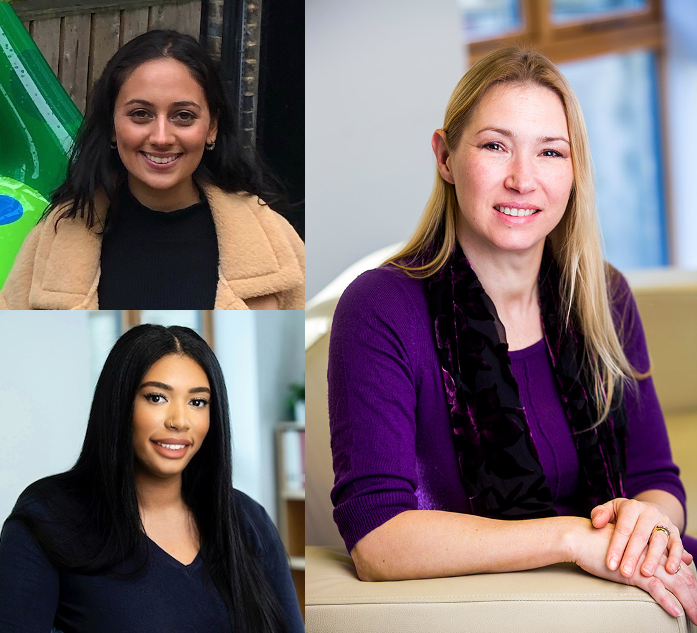Since March, every day has been filled with something to do with Covid-19.
On the one hand, this has been a massively positive experience; collaboration the like of which I have not previously experienced with such a broad spectrum of causes and experiences. On the other hand, I have become acutely aware that this virus, far from being the ‘great leveller’ spoken of by politicians is quite the opposite; it exacerbates inequity and disadvantage and has shone a spotlight on existing privilege and access in a way that has made me deeply uncomfortable.
As I sat down to write this column, all I could think of was George Floyd. Of a policeman – someone who people should be able to rely to ‘protect and serve’ – pressing the life out of a black man, incapacitated and pleading for his life. Coupled with my growing sense of unease and disquiet, I cannot turn away. Even if some will consider equality, inclusion and equal access as not being strictly ‘in my lane’.
It is with this in mind that the rest of this column is co-written with two exceptional, young women, Natalie John (CFG finance assistant) and her friend, Emma Pinto (a database and research officer).
The Black Lives Matter (BLM) movement has vocalised the day-to-day inequalities black people encounter since the 2013 trial of Trayvon Martin’s murderer who was acquitted, despite substantial evidence. A year later, Eric Gardner, killed by US law enforcement officers, re-emphasised the BLM voice worldwide. Six years later, we are faced with the same scenario, graphically filmed for the world to see. George Floyd’s last words the same as Eric Gardner’s… “I can’t breathe”.
Mr Floyd’s death has not been in vain, as the enragement from people globally has caused brands, organisations and celebrities to speak out against the continual injustice that we have ignored for decades. Blackout Tuesday and the mass global protests were a great start in standing in solidarity with the black community, but now we must continue to be outraged and combat injustice.
All lives cannot matter until there is change and equal opportunities at life for black people. So what can we do?
Understand and utilise white privilege. Challenge and educate those who do not understand. Demand equality statistics from your place of work and your favourite brands. If we cannot be vocal about race at home, in the workplace, with friends, now – then when?
Leaders at all levels must accept our own faults and tackle systemic racism everywhere it exists. Because it does – in every corner of our society. If we want change, we must closely examine each of our workplaces and remove practices that allow racism to exist from cradle to grave.
In our medical institutions, doctors must evaluate erroneous assumptions made about black people and tackle the consequential injustices, like the disproportionate rate of black women dying in childbirth. In our schools, teachers must confront the stereotypes they hold about black people that leads them to doubt the success of their black students or give them a lower grade than they deserve. In our publishing houses, publishers must question why they only approach black writers to produce an article on the subject of race. We all have a duty of care to black people, to ensure that in every sector, they are being treated equally.
Confronting our own prejudice is essential, but we must go further and examine how our beliefs uphold structural racism if we are serious about dismantling racism. To ensure that our workplace is anti-racist, we must not only create a safe working environment for black employees, but also ensure our services protect our black students, patients or clients.
The current events have brought into sharp relief what we already knew in dealing with this pandemic; there remain deep structural inequities in the system. It has made us confront this reality and it’s offered an opportunity for change. If we hide behind ‘it’s not my specialism’ or ‘I think we’re already doing great things in our organisation’ we will be complicit in maintaining the status quo.
Now is a moment to make a difference. Isn’t that in all our lanes?
Charity Times video Q&A: In conversation with Hilda Hayo, CEO of Dementia UK
Charity Times editor, Lauren Weymouth, is joined by Dementia UK CEO, Hilda Hayo to discuss why the charity receives such high workplace satisfaction results, what a positive working culture looks like and the importance of lived experience among staff. The pair talk about challenges facing the charity, the impact felt by the pandemic and how it's striving to overcome obstacles and continue to be a highly impactful organisation for anybody affected by dementia.
Charity Times Awards 2023
Mitigating risk and reducing claims

The cost-of-living crisis is impacting charities in a number of ways, including the risks they take. Endsleigh Insurance’s* senior risk management consultant Scott Crichton joins Charity Times to discuss the ramifications of prioritising certain types of risk over others, the financial implications risk can have if not managed properly, and tips for charities to help manage those risks.
* Coming soon… Howden, the new name for Endsleigh.
* Coming soon… Howden, the new name for Endsleigh.
Better Society

© 2021 Perspective Publishing Privacy & Cookies










Recent Stories